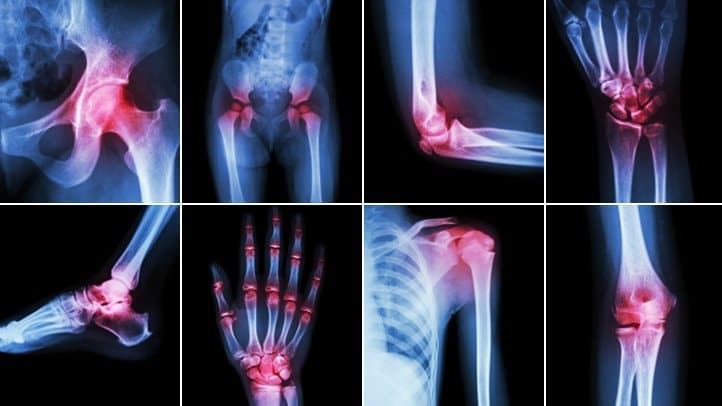Drinking more coffee leads to a longer life according to two studies.
These findings have resurfaced from the centuries-old conversation on coffee’s health effects.
One study surveyed more than 520,000 individuals in 10 European countries, making it the largest study to this day on coffee and death, and discovered that drinking more coffee might significantly reduce an individual’s danger of premature death.
The 2nd research study was more novel, as it focused on non-white populations. After surveying over 185,000 African-Americans, Native Americans, Hawaiians, Japanese-Americans, Latinos and whites, the researchers found that coffee increases longevity throughout numerous races.
People who consumed two to 4 cups a day had an 18% lower threat of death compared to individuals who did not consume coffee, in accordance with the study. These findings follow previous research studies that had actually taken a look at bulk white populations, stated Veronica Wendy Setiawan, associate teacher of preventative medication at USC’s Keck School of Medicine, who led the research study on nonwhite populations.
” Given these really diverse populations, all these individuals have different ways of life. They have really different dietary habits and various vulnerabilities– and we still find similar patterns,” Setiawan said.
The brand-new study reveals that there is a more powerful biological possibility for the relationship between coffee and durability and discovered that mortality was inversely related to coffee usage for heart disease, cancer, breathing disease, stroke, diabetes and kidney illness.
The research study on European nations revealed an inverse association in between coffee and liver illness, suicide in males, cancer in females, gastrointestinal illness and circulatory illness. Those who drank three or more cups a day had a lower threat for all-cause death than individuals who did not consume coffee.
Both studies were released in the Record of Internal Medicine.
” We took a look at numerous countries across Europe, where the method the population uses in preparing coffee is rather different,” said Marc Gunter, who co-authored the European research study.
” The fact that we saw the same relationships in various countries is sort of the implication that its something about coffee instead of its something about the way that coffee is prepared or the method of it’s intake,” he said.
The biological benefits– and caveats
Coffee is a complex mix of compounds, a few of which have been revealed in labs to have biological impacts, Gunter said.
Studies have shown that particular substances have neuroprotective and anti-inflammatory properties that can help reduce danger for diseases like Parkinson’s illness.
In the European study, individuals who were consuming coffee had the tendency to have lower levels of swelling, much healthier lipid profiles and much better glucose control compared to those who weren’t. It is still unclear which particular compounds supply health advantages, however Gunter stated he would be interested in exploring this further.
Both studies separated smokers from nonsmokers, considering that smoking is understood to lower life expectancy and is linked to different deceases, and many who consume coffee also smoke tobacco products.
Nevertheless, they discovered that coffee had inverse impacts on mortality for smokers too.
” Smoking doesn’t appear to blunt the impacts of coffee,” Gunter stated. “It didn’t matter whether you smoked or not. There was still a possible advantageous affect of coffee on mortality.”
Nevertheless, Dr. Alberto Ascherio, professor of Epidemiology and Nutrition at Harvard T.H. Chan School of Public Health, stated people ought to watch out for this finding as he doesn’t want people to think that coffee can offset all the dangers of smoking.
” Even if it remained in some way real, it doesn’t make good sense to me, because by smoking, you increase your death chances several-fold. Then, if you minimize it by 10% drinking coffee, give me a break,” stated Ascherio, who was not involved in the study.
” I think it’s a harmful proposition since it recommends that a smoker can counteract the impacts of smoking by consuming coffee, which is borderline crazy.”
The cup of coffee that might trigger heart palpitations.
The research studies complement work that has been done on coffee and mortality, he stated, and it has actually been fairly documented that coffee drinkers have a lower risk of death.
With all observations from previous studies, nevertheless, it’s challenging to exclude the possibility that coffee drinkers are just healthier to begin with, Gunter stated.
People who avoid coffee, particularly in locations like the US and Europe where consuming the drink is typical, may do so due to the fact that they have illness. Their greater mortality rate could be a result of them being less healthy to begin with.
” I believe that the strong conclusion is that if you’re a coffee drinker, keep drinking your coffee and enjoy,” Ascherio stated. And if you’re not? “I believe you can go on drinking your tea or water without an issue.”
Meanwhile, Gunter and Setiawan stand a bit more strongly on coffee as a health benefit.
” The takeaway message would be that drinking a couple cups of coffee a day doesn’t do you any harm, and actually, it may be doing you some great,” he said.
” Moderate coffee usage can be included into a healthy diet and way of life,” Setiawan said. “This research studies and the previous research studies suggest that for a majority of people, there’s no long term damage from drinking coffee.”










